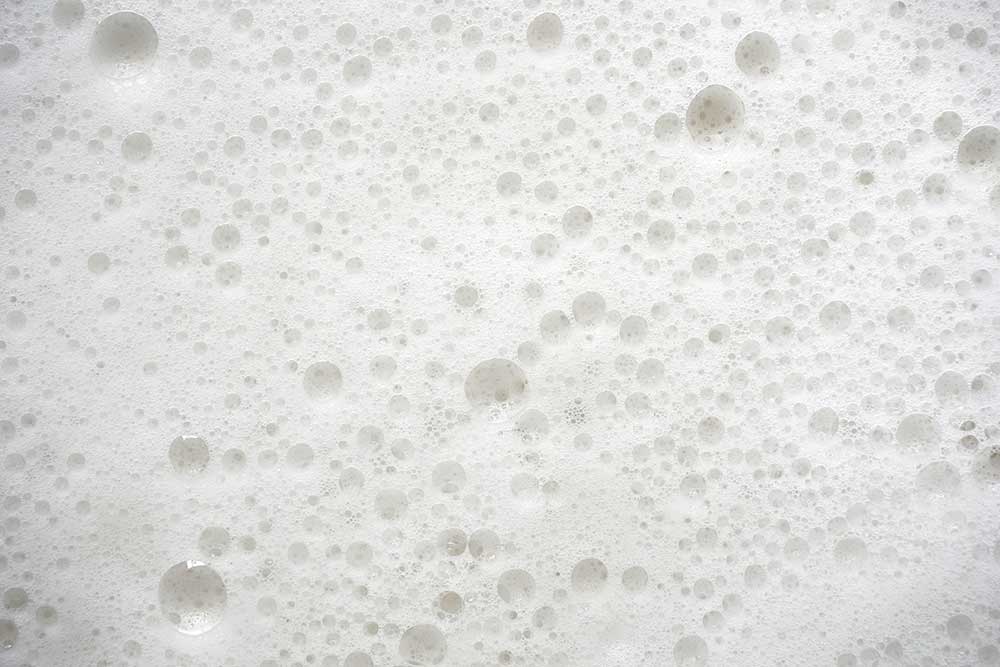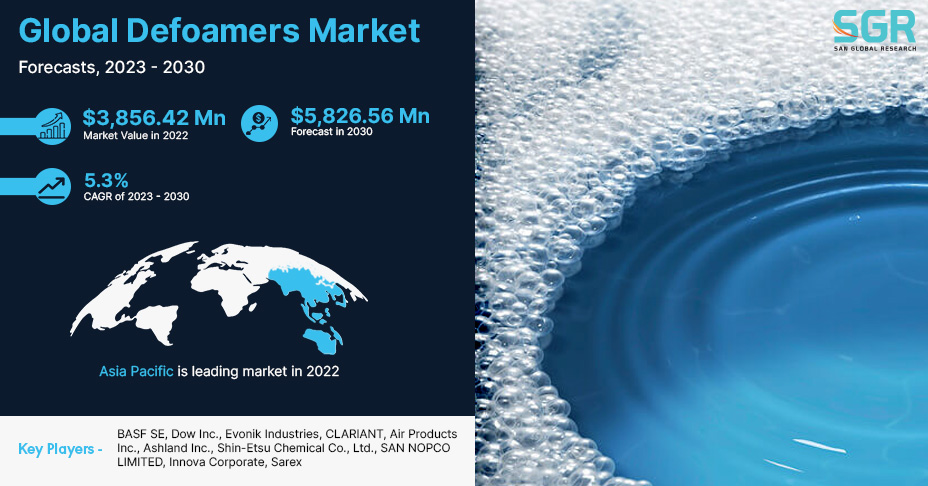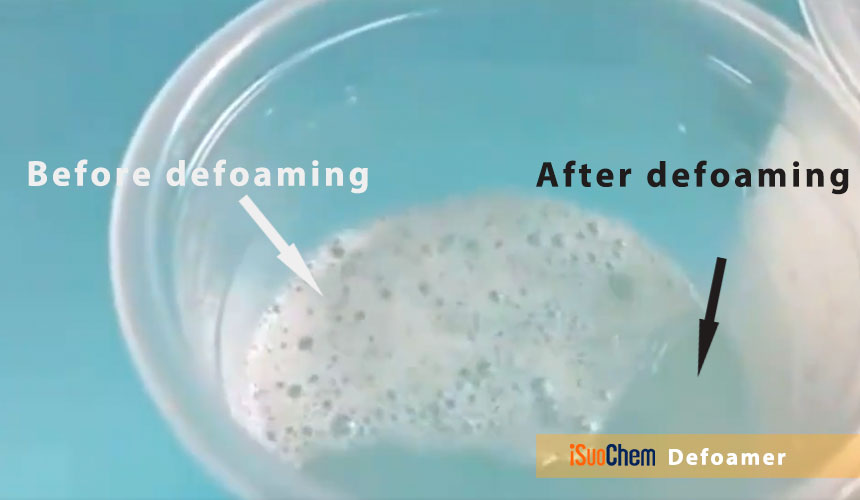Discover the Leading Benefits of Making Use Of Defoamers in Industrial Processes
The utilization of defoamers in commercial processes presents a variety of compelling advantages that can enhance functional performance and product top quality. By successfully controlling foam manufacturing, these agents not just optimize material circulation however likewise add to substantial cost decreases and improved sustainability. Their application covers numerous markets, which increases inquiries regarding their duty in mitigating environmental effect while ensuring constant result. Comprehending these benefits is vital for industries intending to refine their procedures. The implications of embracing defoamers might be more profound than originally perceived. What certain advantages could your organization harness?
Improved Refine Performance
Optimizing industrial processes commonly entails resolving foaming issues, which can hinder operational efficiency. Foam formation can conflict with the appropriate performance of devices, minimize the reliable use of sources, and make complex the tracking of essential specifications. By applying defoamers, industries can efficiently alleviate these issues, resulting in streamlined operations and improved efficiency.
Defoamers job by destabilizing the foam framework, enabling quick collapse and considerable decrease in foam quantity. This activity not just boosts the circulation of products via devices, such as reactors, mixers, and pipes, but also decreases interruptions brought on by foam overflow. Subsequently, devices downtime is reduced, enabling a much more effective and continuous manufacturing process.
Furthermore, using defoamers can cause reduced power consumption. With much less foam to take care of, pumps and compressors can run a lot more efficiently, causing lower functional prices and a general enhancement in procedure throughput. Eventually, the strategic use defoamers not just addresses instant frothing challenges however also adds to a much more reliable industrial ecological community, fostering an affordable benefit in a demanding market.
Improved Product Top Quality
The combination of defoamers in commercial processes plays a crucial function in boosting item quality. By successfully regulating foam formation, defoamers add to the uniformity and uniformity of final items. Too much foam can lead to aeration, which negatively affects the appearance and stability of formulas, specifically in industries such as food and drinks, coatings, and pharmaceuticals.

In addition, defoamers promote much better mixing and diffusion of components, resulting in homogeneity in formulations. This is crucial in applications where exact ingredient proportions are critical for efficiency and safety and security. Additionally, the elimination of foam can decrease the risk of contamination throughout production, additional protecting item stability.
Inevitably, by enhancing item high quality, defoamers not just improve customer fulfillment however also strengthen brand track record. Their role in preserving top quality criteria underscores their value in modern commercial processes.
Expense Decrease Benefits
Applying defoamers in industrial processes can cause significant cost decrease advantages. By successfully regulating foam formation, defoamers reduce item loss throughout manufacturing, thus maximizing product usage. This reduction in waste converts directly into reduced raw product prices, enhancing overall operational effectiveness.
In addition, the use of defoamers can lower energy consumption. Excessive foam can impede devices efficiency, bring about increased energy requirements to maintain production levels. By reducing foam, defoamers help with smoother operations, enabling equipment to run a lot more successfully and lowering power expenses.

Furthermore, defoamers can reduce handling times. Foam can produce extra challenges that prolong production cycles. By utilizing defoamers, sectors can simplify their procedures, bring about faster turn-around times and boosted throughput. This effectiveness not only accelerates production yet additionally enables companies to meet market needs go more swiftly.

Environmental Effect Reduction
In commercial processes, the use of defoamers plays a critical role in mitigating environmental effects connected with foam generation. Foam can result in substantial operational ineffectiveness, causing enhanced discharges and waste generation. By properly regulating foam, defoamers assist preserve process performance, therefore lowering the general ecological impact of procedures.
Moreover, too much foam can overflow control systems, resulting in spills that may contaminate dirt and water resources. Defoamers aid reduce this danger by guaranteeing that frothing does not go beyond suggested restrictions, promoting conformity with environmental laws. This aggressive technique not only safeguards ecological communities however also improves the sustainability of commercial methods.
Additionally, making use of defoamers can reduce energy usage in numerous processes. defoamers. Lowering foam formation lessens the need for extra energy-intensive actions, such as increased agitation or pumping, which may otherwise be required to manage foam. Consequently, the fostering of defoamers lines up with wider sustainability goals by advertising power effectiveness while minimizing the carbon impact of industrial activities.
Ultimately, incorporating defoamers right into commercial procedures is a critical step that supports environmental stewardship and accountable resource management.
Versatility Across Industries
Throughout numerous sectors, defoamers show exceptional adaptability, adjusting to the particular requirements of diverse applications. In the food and drink field, for example, defoamers are crucial to maintaining item quality by stopping foam development during processing, which can influence structure and flavor. Similarly, in the pharmaceutical sector, defoamers make sure the stability of formulations, boosting product efficiency and consistency.
In the chemical manufacturing world, defoamers facilitate smoother procedures by reducing foam in response vessels, therefore boosting yield and minimizing downtime. The paper and pulp industry depends on defoamers to boost the efficiency of pulp handling and paper manufacturing, guaranteeing optimum product stability. In addition, in wastewater therapy facilities, defoamers play a vital role in regulating foam throughout aeration processes, leading to improved therapy end results.
The flexibility of defoamers encompasses the oil and gas industry, where they help in taking care of foam in boring liquids and manufacturing procedures. By customizing solutions to meet particular sector requirements, defoamers serve as crucial devices that boost functional efficiency, product quality, and overall process efficiency across a plethora of industries. Their adaptability highlights their value in modern industrial applications.
Final Thought
In conclusion, the usage of defoamers in commercial procedures presents many advantages, including improved performance, enhanced item top Discover More quality, significant expense decreases, and positive ecological impacts. The combination of defoamers stands for a strategic method to attending Source to obstacles associated with foam administration in different making environments.
Ultimately, the calculated use of defoamers not just addresses prompt frothing challenges but likewise contributes to a much more reliable commercial ecosystem, fostering a competitive advantage in a demanding market.
In industrial procedures, the usage of defoamers plays an essential function in mitigating environmental effects connected with foam generation. By successfully managing foam, defoamers assist preserve procedure effectiveness, consequently lowering the total environmental footprint of operations.
Additionally, in wastewater therapy centers, defoamers play an essential duty in regulating foam throughout oygenation processes, leading to improved treatment outcomes.

 Kel Mitchell Then & Now!
Kel Mitchell Then & Now! Alicia Silverstone Then & Now!
Alicia Silverstone Then & Now! Ariana Richards Then & Now!
Ariana Richards Then & Now! Jennifer Love Hewitt Then & Now!
Jennifer Love Hewitt Then & Now! Michael C. Maronna Then & Now!
Michael C. Maronna Then & Now!